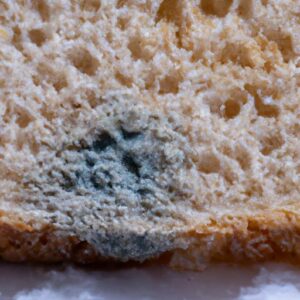Introduction
Have you ever wondered what happens to the leftover cooking oil after you’re done frying up a delicious meal? Many of us simply pour it down the drain without considering the consequences. However, improper disposal of cooking oil can have dire effects on the environment. In this article, I will shed light on the importance of properly disposing of cooking oil and the negative impacts of improper disposal.
Importance of proper disposal of cooking oil
Properly disposing of cooking oil is not just a matter of convenience, but also a responsibility we have towards the environment. When cooking oil is dumped down the drain or flushed down the toilet, it can wreak havoc on our plumbing systems. The oil solidifies and clings to the inside of pipes, leading to clogs and costly repairs. But that’s not all.
Negative effects of improper disposal on the environment
The consequences of improper cooking oil disposal extend far beyond our homes. When oil enters the sewage system, it can overwhelm wastewater treatment plants. These facilities are not designed to handle large amounts of oil, leading to inefficient treatment processes and potential environmental contamination. Additionally, when oil reaches rivers, lakes, or oceans, it forms a thick layer on the surface, preventing oxygen from reaching aquatic organisms and causing harm to marine life.
Now that we understand the risks and impacts of improper cooking oil disposal, let’s explore safe and environmentally-friendly methods to dispose of cooking oil. By adopting these methods, we can contribute to a cleaner and healthier planet.
Understanding the Risks and Impacts of Improper Cooking Oil Disposal
Clogging of drains and pipes
When cooking oil is poured down the drain, it may seem like a quick and convenient solution. However, this greasy substance can cause significant problems for our plumbing systems. As the oil cools and solidifies, it adheres to the inner walls of pipes, accumulating over time and eventually leading to clogs. These blockages not only disrupt the flow of wastewater but also require expensive repairs to rectify. By properly disposing of cooking oil, we can prevent these frustrating and costly plumbing issues.
Harmful effects on wastewater treatment systems
Wastewater treatment plants play a crucial role in purifying our water before it is released back into the environment. However, when cooking oil enters these systems, it poses a serious threat to their efficiency. Oil and grease do not mix well with water, forming a thick layer on the surface of treatment plant tanks and obstructing the normal treatment processes. This results in decreased treatment capacity, increased energy consumption, and potential release of untreated or partially treated wastewater into the environment. By disposing of cooking oil responsibly, we can help maintain the effectiveness of wastewater treatment systems and preserve water quality.
Environmental pollution and damage to aquatic life
Improper disposal of cooking oil can have devastating consequences for our ecosystems. When oil enters bodies of water, it forms a slick layer on the surface, preventing oxygen from reaching aquatic organisms below. This leads to reduced oxygen levels, suffocating fish and other aquatic life. Additionally, the toxic components present in cooking oil can contaminate waterways, causing long-term damage to the ecosystem. It is our responsibility to safeguard the health of our environment and protect the delicate balance of aquatic ecosystems by opting for proper cooking oil disposal methods.
Now that we have explored the risks and impacts of improper cooking oil disposal, let’s delve into safe and environmentally-friendly methods to dispose of cooking oil effectively. By adopting these methods, we can play an active role in preserving the environment and safeguarding our plumbing systems.
Safe and Environmentally-Friendly Methods to Dispose of Cooking Oil
A. Allow oil to cool and solidify before disposal
Before you think about disposing of your used cooking oil, it’s crucial to let it cool down and solidify. This makes it easier to handle and prevents any accidental spills or burns. Simply turn off the heat and place the pot or pan aside until the oil reaches room temperature. Once solidified, you can scrape it into a container for proper disposal.
B. Use absorbent materials like paper towels to soak up oil
If you’re dealing with a small amount of leftover oil, an effective method is to use absorbent materials like paper towels. Lay a few sheets of paper towel on top of the oil and gently press down to soak it up. Repeat this process until all the oil has been absorbed. Remember to dispose of the oil-soaked paper towels in a sealed bag or container to prevent any leakage.
C. Reuse or donate cooking oil when possible
Before you consider disposing of your cooking oil, think about whether it can be reused. If the oil is still in good condition and hasn’t been contaminated with food particles or excessive seasoning, you can strain it and store it for future use. Alternatively, consider donating your unused cooking oil to local organizations or biodiesel facilities that can put it to good use.
D. Utilize recycling centers and drop-off locations
When all other options are exhausted, recycling centers and drop-off locations are your best bet for proper cooking oil disposal. Many communities now offer dedicated facilities where you can safely dispose of your used cooking oil. These centers ensure that the oil is recycled or converted into biofuels, minimizing the environmental impact. Check with your local municipality or waste management department to find the nearest drop-off location.
By following these safe and environmentally-friendly methods, you can ensure that your cooking oil is properly disposed of without causing harm to the environment. Let’s explore specific recycling centers and drop-off locations that accept cooking oil in the next section.
Recycling Centers and Drop-Off Locations for Cooking Oil Disposal
Local recycling centers that accept cooking oil
One of the most convenient and environmentally-friendly ways to dispose of cooking oil is by utilizing local recycling centers. These centers are equipped to handle used cooking oil and ensure its proper disposal or recycling. A quick search online or a call to your local waste management department can provide you with a list of recycling centers near you that accept cooking oil. Check their operating hours and any specific requirements they may have, such as bringing the oil in a sealed container.
Municipal collection programs
Many municipalities offer collection programs specifically designed for used cooking oil. These programs are often set up to encourage residents to dispose of their cooking oil responsibly. They may provide designated drop-off locations or even arrange for curbside collection on specific days. Contact your local municipality or visit their website to find out if they have any such programs in place and how you can participate.
Retail stores and supermarkets with oil recycling services
Retail stores and supermarkets are increasingly becoming active participants in promoting sustainable practices, including proper cooking oil disposal. Some larger chains offer oil recycling services where you can drop off your used cooking oil. These stores often have dedicated collection containers near their entrances or customer service areas. Next time you visit your local grocery store, keep an eye out for these containers and contribute to their efforts in reducing environmental impact.
By taking advantage of recycling centers, municipal collection programs, and retail store services, you can easily find appropriate disposal options for your used cooking oil. Remember, every small effort counts towards protecting our environment and preserving the well-being of our planet.
Proper Disposal of Large Amounts of Cooking Oil
A. Contacting local recycling companies or rendering plants
If you find yourself with a large quantity of cooking oil that needs to be disposed of, reaching out to local recycling companies or rendering plants is a wise move. These organizations specialize in the proper disposal and recycling of cooking oil and can provide you with valuable guidance on how to handle large amounts. They have the necessary equipment and processes to safely collect and repurpose the oil, ensuring it doesn’t end up causing harm to the environment.
When contacting local recycling companies or rendering plants, inquire about their specific requirements for drop-off or collection. They may have designated containers or collection points where you can safely deposit your used cooking oil. Some facilities may even offer pick-up services for larger quantities, making the process even more convenient for you.
B. Investigating community events or initiatives for oil collection
Another avenue to explore when disposing of large amounts of cooking oil is to investigate community events or initiatives focused on oil collection. Many neighborhoods, cities, or even local organizations organize events where residents can bring their used cooking oil for proper disposal. These events often partner with recycling companies or rendering plants to ensure the oil is handled responsibly.
Keep an eye on community notice boards, local newspapers, or social media groups to stay informed about such events. Participating in these initiatives not only helps you dispose of your cooking oil responsibly but also contributes to a collective effort in reducing environmental impact. By joining forces with your community, you can make a significant positive impact on the environment and set an example for others to follow.
In the next section, we will conclude our guide by summarizing the importance of responsible cooking oil disposal and encouraging you to spread awareness about proper disposal methods.
Conclusion
In conclusion, the proper disposal of cooking oil is crucial for maintaining a healthy environment. By taking responsibility for our oil waste, we can prevent clogged drains, protect wastewater treatment systems, and safeguard aquatic life from pollution. Remember, allowing the oil to cool and solidify, using absorbent materials, and exploring recycling centers and drop-off locations are all effective ways to dispose of cooking oil responsibly.
It is essential that we spread awareness about the importance of proper cooking oil disposal. By educating our friends, family, and communities, we can collectively make a significant impact on the environment. Together, let’s take small steps towards a greener future.
As you embark on your journey to dispose of cooking oil responsibly, remember that every drop counts. By making conscious choices and implementing these environmentally-friendly methods, we can ensure a cleaner and healthier world for generations to come. So, the next time you finish cooking a delicious meal, ask yourself: “Where should I dispose of my cooking oil?” and make the responsible choice.


